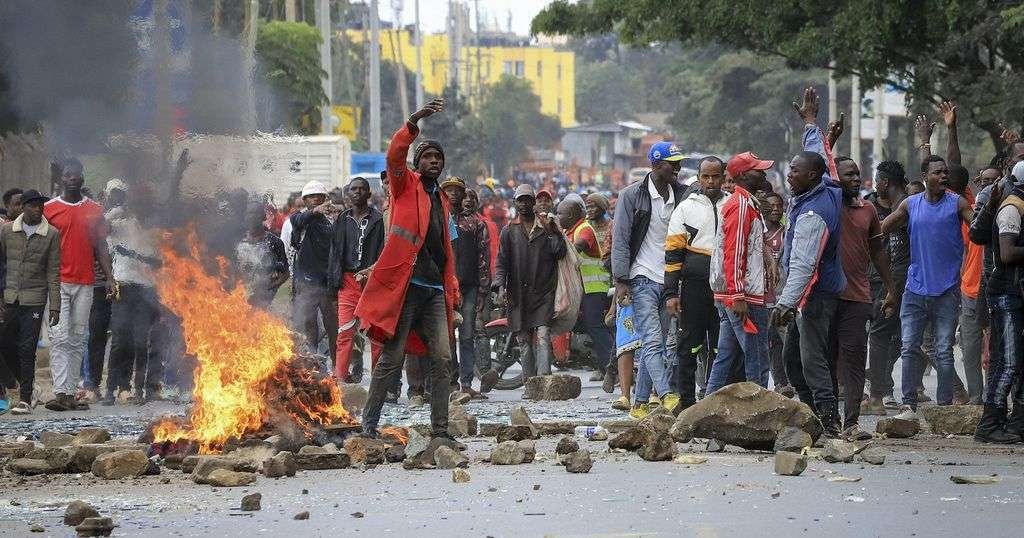Nairobi, Kenya – (African Boulevard News) – Residents of Kenya’s capital Nairobi are holding out hope for a much-needed dialogue between President Uhuru Kenyatta and the opposition, following months of deadly protests against the government. The citizens, weary from the unrest and violence that has plagued the nation, are yearning for a peaceful resolution to the political crisis.
The opposition, led by Raila Odinga of the National Super Alliance (NASA), expressed their readiness to engage in dialogue with the government. Odinga, a former Prime Minister, has been at the forefront of the anti-government protests, demanding electoral reforms and an end to what they perceive as an increasingly authoritarian rule.
Despite their initial reluctance, President Kenyatta and his government have finally shown signs of willingness to engage in talks. This newfound hope has ignited a flicker of optimism among Kenyans, who are yearning for an end to the bloodshed and a return to stability and prosperity.
Political analyst, Dr. Mary Kamau, believes that dialogue is crucial for the nation’s progression. She stated, “Kenya cannot afford to continue in this state of political turmoil. Dialogue is the only viable solution to bridge the gap between the government and the opposition. Both sides need to come to the table, listen to each other’s concerns, and find common ground for the betterment of the nation.”
The people of Kenya have been deeply affected by the months-long protests. Lives have been lost, livelihoods destroyed, and the economy severely impacted. The ongoing unrest has left a scar on the nation’s collective psyche, with many citizens yearning for peace and stability.
However, skepticism still lingers among Kenyans due to past unsuccessful attempts at dialogue. The fear of empty promises and lack of real progress looms over the potential talks. The key now lies in ensuring that meaningful dialogue takes place, with concrete actions and tangible results.
In order to build trust and foster a conducive environment for dialogue, it is imperative that both sides demonstrate sincerity and a genuine commitment to resolving the nation’s numerous challenges. This requires putting aside personal interests and focusing on the greater good of the country.
As Kenya cautiously steps towards the possibility of dialogue, it is essential for all stakeholders, including civil society organizations and international partners, to support the process. Their involvement can provide oversight, ensure accountability, and lend credibility to the dialogue.
While there are no guarantees of a successful outcome, the hope for a peaceful resolution and a united Kenya remains steadfast. The nation looks to its leaders to rise above their differences, prioritize the welfare of its citizens, and pave the way for a brighter future.
In the face of political uncertainty, Kenyans are daring to hope that this time, dialogue will prevail over division; that unity will triumph over strife. It is a delicate moment for the nation, but one that holds the potential for a brighter and more stable future.

